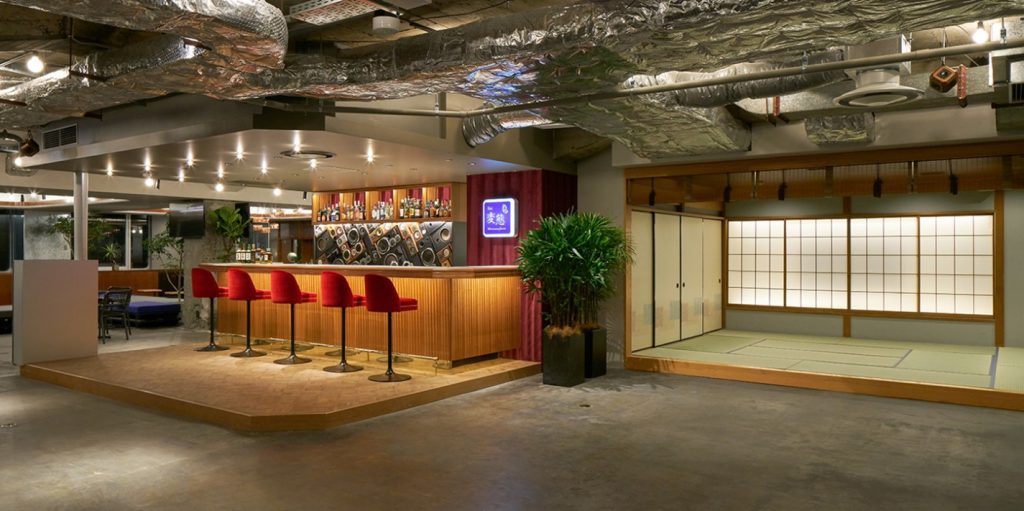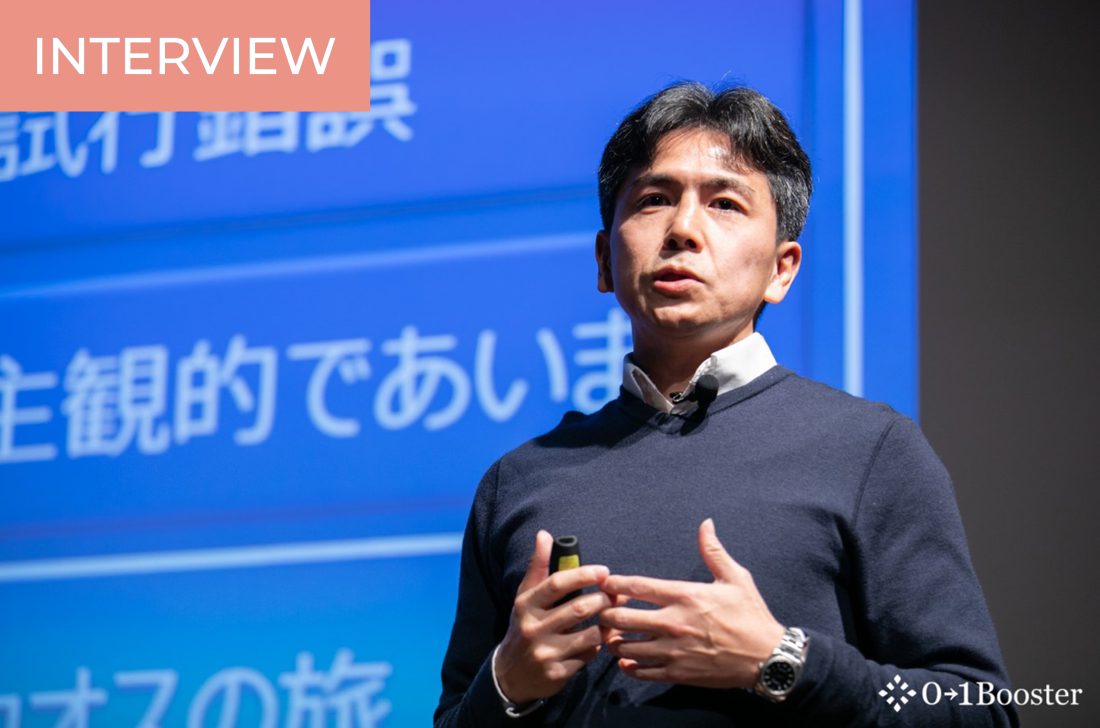Japan’s expanding startup ecosystem can be enigmatic to the outside world. There’s no shortage of online debates as to whether Japan should emulate the popular startup ecosystems of the United States or, in typical fashion, blaze its own trail to success.
One thing that most experts agree on, however, is that a robust startup ecosystem is essential for economic growth. After over three decades of economic stagnation, a lot is riding on how rapidly Japan can spin up its own startup-fueled engine of growth. Even the Government of Japan, a poster child for “slow and steady wins the race,” has finally realized the importance of startups and is proposing significant policy changes to minimize the risks associated with launching one.
To guide us through this pivotal moment in Japan’s economic history, I reached out to Norifumi Suzuki, founder and CEO of 01 Booster, a startup accelerator and incubator on a mission to make Japan a country that can create new innovative businesses and change the world. A salaryman-turned-founder, Norifumi works within the connective tissue that bonds startups, the government, and the traditional corporations that still dominate Japan’s economy. Read on to learn about his own entrepreneurial journey, why startups are essential to Japan’s economic revival, what traits successful founders share, and why Japan just might be the ideal place for you to launch a business.
From Salaryman to Founder

My parents and all my relatives are employers—not employees. No one told me about the salaryman way of life.
Why and how did you transition from a traditional career to become the founder of a startup accelerator?
After I graduated from university, I worked as a salaryman in two large Japanese corporations over the course of 13 years. However, during that period, I was dissatisfied because I couldn’t follow my heart. I wanted to follow my own path. My parents and all my relatives are employers—not employees. No one told me about the salaryman way of life. So, it was only natural that I would eventually transition from salaryman to founder.
May I ask why you didn’t make the transition sooner?
I didn’t understand how to become an entrepreneur in Japan. When I was in school, no one was teaching us about this. These days, many organizations—including the government—teach people how to be entrepreneurs. This wasn’t the case as recently as 10 years ago.
Is it safe to say that you learned what it takes to run a business by working as a salaryman?
That’s correct. I also went to business school and earned an MBA. As you know, a lot of people who want to become entrepreneurs go to business school. I was inspired by the entrepreneurs that attended my school and my classmates who went on to found startups.
Launching a Successful Startup in the Modern Japanese Economy
Traditionally, Japan was famous for making physical products—what we call monozukuri.
Why are startups important for the Japanese economy, which has traditionally relied on large, powerful corporations?
Innovation is critical for generating economic growth. However, large, traditional corporations in Japan struggle to create this necessary disruptive innovation. For example, Toyota failed to create something like UBER. JTB Corporation couldn’t create a platform like Expedia. Sony never created a service like Spotify. They were all preoccupied with their existing business models.
In which industries do Japanese startups find the most success?
Japanese startups aren’t limited to a specific industry. Founders are looking at various fields: Web3, energy, the environment, and so on. All fields with viable opportunities attract attention from entrepreneurs.
Historically—let’s say over the past 10 years—is there one industry that has been a better economic or cultural fit for Japanese startups?
For the last 20 years or so, many startups have focused on IT: digital transformation, for example. This is because it is relatively easy to establish an IT company. You don’t have to raise a lot of capital or take on a lot of assets. You just need human resources.
Traditionally, Japan was famous for making physical products—what we call monozukuri. Large corporations dominate this space because they have a vast amount of assets, patents, and human resources. So, it’s very hard for startups, which are typically small, to compete when it comes to making physical products.
Successful founders have an ability to involve others.
What common traits have you noticed in successful Japan-based startups?
First, successful founders have an ability to involve others. For example, they need to collaborate with large corporations and the government. Talented founders tend to be social and have strong communication skills. As you know, no one can create a business alone. Startups require a lot of assets and a vast human network.
Second, founders need to discover and define emerging markets. For example, when Steve Jobs launched the iPhone, no one knew that they wanted a smartphone. He defined a new market for these devices, and the world has never been the same since then.

Third, as an organization that provides venture capital, we find that having enthusiasm and passion is essential. So, we invest in founders that have these traits. If you look at the world’s most successful founders, they are all passionate about what they are doing. Enthusiastic founders like Mark Zuckerberg don’t dwell on the difficulties of building a business. They are crazy about their ideas and enjoy the process of growing a business.
And finally, we can’t forget about luck. Frankly speaking, entrepreneurs simply need luck.
Startups and the Government of Japan
What role do organizations like 01 Booster play in Japan’s startup ecosystem?
We are a startup accelerator, incubator, and venture capital investor. We catalyze the relationship between startups and banks, the government, universities, and large corporations.
Traditionally, Japanese companies have relied on insourcing—handling all business functions internally instead of contracting work out to a third-party. Until recently, Japanese corporations survived despite the inability to collaborate with outsiders. The modern company needs to collaborate with outside organizations to succeed, and they need an organization like us to catalyze these external relationships.
What should the government be doing to support Japan’s startup ecosystem?
The government has historically given preferential treatment to large corporations. These days, however, the government has developed a positive attitude toward supporting startups and is driving policy accordingly. This is because the Japanese economy has been in decline and, as we discussed, large corporations struggle to develop new business ideas. Policymaking is always imperfect, and right now, the government is trying new things, failing, and improving. This trial-and-error process is important, as it’s impossible to achieve perfect results right away.
Considering this, would you say that the government, in its own way, is emulating a typical startup feedback loop?
Certainly. You can see this in how the Japanese government and Keidanren [Japan Business Federation] have been gradually shifting their policies toward supporting startups.
Do you have any specific suggestions for the Government of Japan and Keidanren regarding startups?
I think it’s time for the older generation of managers to pass the torch to younger people. This is because the older generation experienced Japan’s high-growth period during the 1950s through the 1970s and the bubble economy [1986 – 1991]. Therefore, it’s hard for them to understand the importance of startups and it’s difficult for them to imagine what a new business environment would look like. Because of the experiences they had during the bubble economy, they still believe that large corporations can generate new business ideas.
If you could change only one thing about Japan’s business or startup environment, what would it be?
The Japanese government should institute an equal-footing policy between startups and large corporations. Despite the progress I mentioned earlier, the government is still giving large corporations preferential treatment. One of the reasons for this is because decision-makers in large corporations and the government are all from that older generation, and they are strongly connected with each other.
Starting a Business in Japan

With so many attractive startup ecosystems around the world, is Japan truly an ideal place for foreign entrepreneurs to launch a business?
The Japanese market is great for foreign entrepreneurs. It’s a huge market, and, we have a lot of room for innovation. Related to what I said before, this is because the government has been protecting large businesses from external disruption. For example, UBER, as a ride-sharing platform, was banned from the Japanese market. This leaves space for innovation from within. And now, the government is following a deregulation policy, which also creates potential. Additionally, Japan’s startup ecosystem is not as competitive as its US and European counterparts.
If you want to launch a startup in Japan, you should first join a startup community.
What about the often-cited language and cultural barriers associated with doing business in Japan?
The Japanese government has started to enhance English education for children. So, I think the upcoming generation will be more comfortable with English than the current one. Language and cultural barriers should shrink over time. Even presently, things like the English language and American culture continue to penetrate Japan. So, overall, I believe it will continue to get easier and easier for foreign entrepreneurs to launch a business here.
To conclude, what advice do you have for someone who wants to start a business in Japan?
I offer the same advice to foreign and Japanese entrepreneurs alike: Feel free to start a business. It’s not as difficult as you might imagine. Start small and grow large. If you want to launch a startup in Japan, you should first join a startup community. We actually have such a community in our Yurakucho [Tokyo] co-working space, and we have a few foreign startups working there. Overall, I believe foreign entrepreneurs will find the Japanese startup scene to be quite welcoming.




